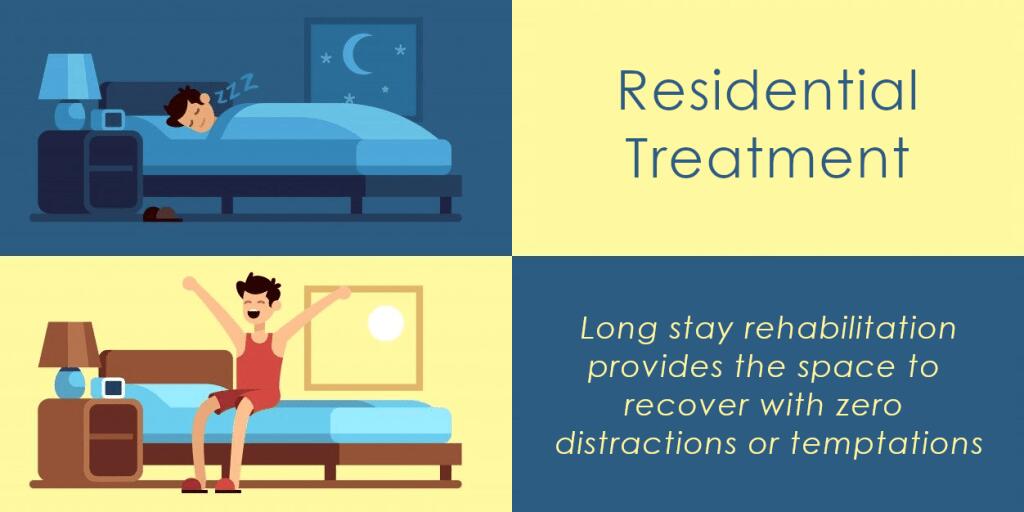Rehab in Newcastle
Rehab Guide’s expert advice on residential addiction treatment can help you find the right rehab in Newcastle for you or a loved one.
The guidance on this page intends to help those struggling to abstain from drugs or alcohol. The following advice provides extensive information for those seeking a regimen at an alcohol rehab treatment in Newcastle Upon Tyme & Lyme.
If you are in Newcastle and are struggling with alcohol dependency, opiate, opioid or prescription drug misuse, we can help you. Our team of counsellors are only a message or a phone call away from giving you the aid you need.
Contact us today, and we can connect you with a drug and alcohol treatment centre that will help you get back onto your feet.
Signs you need help
A common question we get asked is, ‘Do I need rehab?’. Alcoholism, characterised by a preoccupation with alcohol, is described as excessive drinking with frequent loss of control of the amount of alcohol consumed.
“The continuation of drinking despite mounting negative consequences is a red flag.”
If the above resonates with you, read the following signs and symptoms of alcohol abuse. Once you have finished, you will hopefully answer the question, ‘am I an alcoholic?’.

Signs and symptoms of alcohol misuse:
- Being unable to reduce, moderate or stop alcohol despite a desire to do so
- Spending a lot of time obtaining, using, and recovering from the effects of alcohol.
- You over-rely on alcohol, cravings or a strong, overwhelming desire for alcohol.
- Relationships, home life, work or school commitments have suffered because of alcohol consumption
- Continuing to abuse alcohol despite the presence of harm to your physical or mental well-being.
- Developing a tolerance to alcohol and suffering withdrawals when you stop drinking
What does rehab treatment involve?
A typical day in alcohol treatment will follow a structured program, which usually includes psychological therapy, detoxification treatment, holistic therapy and recreational activities.

Medical detox from alcohol
Heavy drinkers or drug users stopping substances suddenly can experience extreme withdrawal symptoms without treatment. Symptoms can include anxiety, headaches, hallucinations, sleep issues, sweats, tremors and seizures.
When things get severe, a recovery centre has the tools needed to ensure that you’re safe. Reputable clinics have alcohol detox medication and doctors on hand to ease symptoms and prevent severe outcomes.
“Residential clinics provide a safe and comfortable refuge while you detox from alcohol or other drugs.”
Medical detoxification is available for individuals with all types of drug addictions, such as cannabis, cocaine, heroin, methamphetamine, prescription drugs, valium, benzodiazepines, and more.
Once your body clears addictive substances, you can begin restoring your health and start psychological treatment.
Psychiatric and psychological treatment
Psychiatry is a medical field in which professionals are qualified to diagnose, evaluate, and treat mental illness. Addiction psychiatry treats individuals recovering who abuse substances by identifying the mental disorders that lead to substance abuse.
The treatment of addiction using psychiatry treats co-occurring disorders. Mental health treatment usually involves medication and counselling, while issues treat substance abuse with detoxification, behavioural and talking therapy.
Key workers assigned to all patients will be responsible for your care plan. An addiction recovery care plan is like a road map that will form the basis of your treatment. An addiction key worker will meet regularly with you to look at other problems affecting your life and, therefore, your recovery. People can have different difficulties apart from substance abuse, such as debt or housing, children or families, and physical or mental health issues. Your key worker can help you set a plan to overcome these difficulties.
Therapies can include:
- Psychiatric evaluation
- One-on-one psychological therapy
- CBT (cognitive behavioural therapy)
- Motivational interviewing
- Eye Movement Desensitization and Reprocessing (EMDR)
- 12 step program
Holistic therapy
Holistic therapies involved in helping addictions include yoga, meditation, massage, acupuncture, art or music therapy. Holistic therapies are designed to help individuals understand their symptoms and foster a sense of self-awareness to understand their body, mind, and relationships and how these elements play a role in mental health.
Exertion and rest are both necessary components of mental health improvement.
“Your brain needs rest to sort things out and make sense of what is going on in your life.”
It helps us have a calmer and clearer mind which aids positive thinking, concentration, memory and decision making. Relaxation slows our heart rate, reduces our blood pressure and relieves tension.
Relaxation & Recreation
Addiction centres provide a safe and stress-free space during recovery, a retreat for your mind and body.
There will be allotted slots between the treatment program allowing you to relax by yourself in your room, shared living room or grounds. Recreational activities such as exercising will be in a group setting.
Most addiction units have a garden, library, gym, swimming pool, holistic therapy room, relaxation room and a communal room where you can socialise or make tea/coffee.
In-house therapy centres are the perfect place to heal the body and mind. During ‘relaxation time’, you will get the opportunity to reflect on your time in therapy. Perhaps the reasons why you feel the compulsion to drink alcohol and how you can remedy the root causes of your drinking problem.
How to access treatment
To get into addiction treatment in Newcastle, you can phone our helpline to arrange your admission. We will link you with a treatment centre in Newcastle if you feel it fits you.
These are the steps to enter a substance misuse program:
- Call our addiction advisors for an informal chat on 020 7205 2845
- Carry out an anonymous addiction assessment over the phone with a member of our team
- We will provide you with all the information about the Newcastle clinic and book you in
How to help someone access a program
To help a friend, family member, or partner find substance abuse treatment services, you can phone our helpline service for guidance.
Our alcohol and drug helpline for families of individuals with addictions has a vast database of drug and alcohol rehab information.
Addiction is challenging for anyone not fully educated about relapse prevention techniques. Even the sufferer is unlikely to understand why they do what they do; it truly is a baffling illness.
Our alcohol counsellors can advise you on persuading someone to get help. For example, we can hold an alcohol addiction intervention for you over the phone or advise you on carrying this out yourself.
Accessing free help
If you are looking for help for an alcohol problem, a GP is an excellent place to start. They can discuss your problems with you and can get you into treatment. They may offer you treatment at the practice surgery hospital or refer you to a government-funded local drug service.
Newcastle Treatment and Recovery (NTR): Referral into the service can be done by email: NTARreferrals@cntw.nhs.uk or by telephone.
Plummer Court, Newcastle-upon-Tyne: Specialist alcohol and drug misuse treatment interventions, including prescribing, harm reduction, structured counselling, and inpatient detoxification to those experiencing drug, alcohol and co-morbid mental health problems.
NECA: Drug support service for individuals aspiring to maintain long-term recovery from substances and gambling misuse.
Changing Lives: drug and alcohol substance abuse services in Newcastle. Visit their website for more information.
Change Grow Live: alcohol and drug abuse services such as the Gatehead Recovery Partnership.
Ask your GP how long the waiting list is for drug and alcohol services or for immediate admission, try private rehab or therapy.
Local addiction support groups: AA meetings Newcastle, NA meetings Newcastle
After treatment
Your key worker will help you devise an aftercare plan. Attending a 28-day program will undoubtedly put you on the right path for recovery, but aftercare is what will strengthen you and dramatically decrease your chances of relapsing.
Aftercare is vital for relapse prevention because you learn different methods to understand your triggers and cope with them and any cravings you might get.
When people first enter an addiction program, they can often feel physically and emotionally depleted. These are the common feelings individuals have when they arrive, in comparison to how they think on completion:
| Before Rehab | After Rehab |
| Vulnerable: In need of special care and support. | Resilient: Better equipped to withstand or recover from difficult conditions. |
| Poor health: Physically weak and feeling rundown. Headaches, nausea, shaking, tremors, pains, tiredness, seizures, apathy, alcohol-related illness etc. | Improved health: Clean from alcohol/drugs, on the road to better health and have learned to look after yourself better. |
| You are scared: Scared to eliminate emotional crutch (alcohol/drugs), meet new people or face up to the problems your addiction has caused. | Accepting: Accepts responsibility for their life the damage they have caused to their life and is compassionate to themselves and others. |
| Irritable/angry: Angry for problem drinking/drugging; you are worried about cravings and withdrawals. | A Critical thinker: Rationalises and evaluates information to reach a solution. Thinking is clearer. |
Once you’ve finished your program, it’s time to improve your health, mend your mind and work on the relationships affected by your alcohol addiction.
An aftercare plan includes:
- Relapse prevention strategies
- Self-help strategies
- Continued therapy in Newcastle
- Introduction to local support groups such as Alcoholics Anonymous, Narcotics Anonymous or SMART Recovery groups in Newcastle.
- If required, Antabuse, an anti-alcohol medicine or ‘deterrent’, can be prescribed.
- If required, Naltrexone, an anti-drug medication, can be prescribed in pill or implant.
Take back control of your life and seek help now: Call for alcohol and drug advice

John has dedicated his life to finding treatment for those with addictions and supporting their families.
A business manager for 20 years in the construction industry John’s own experience of addiction led him to found his own rehab centre group in Scotland.
John qualified as a counsellor for people with substance misuse during his time working as a therapist and manager for the foundation. He also trained as an interventionist and appeared on ITV as a consultant helping families impacted by addiction.
He has helped thousands of people in recovery and his knowledge of the rehabilitations process and the addiction experience is unparalleled.


